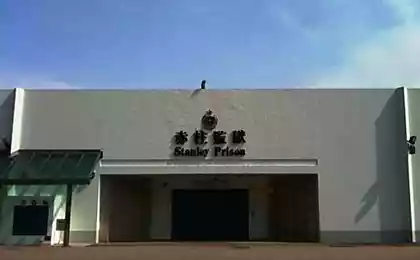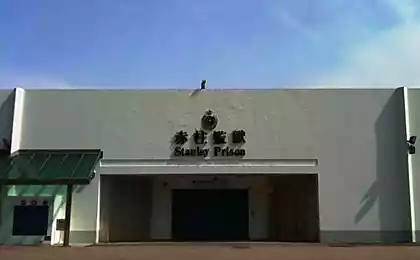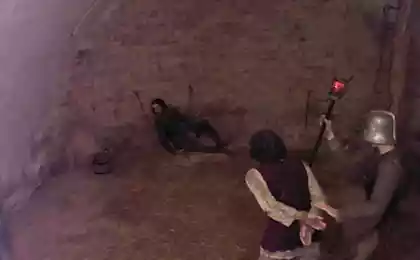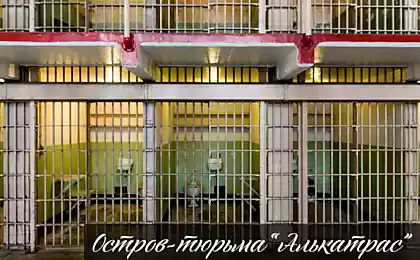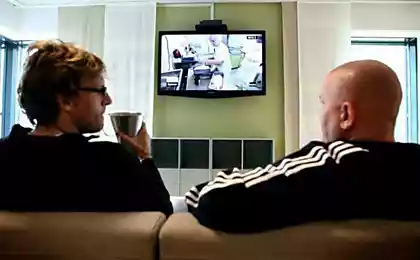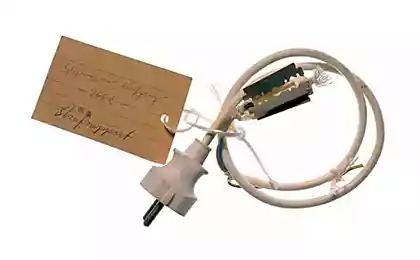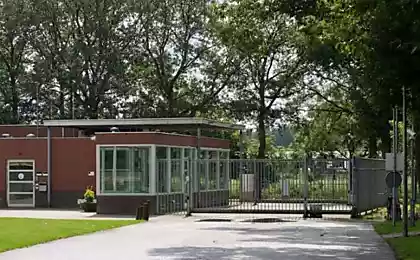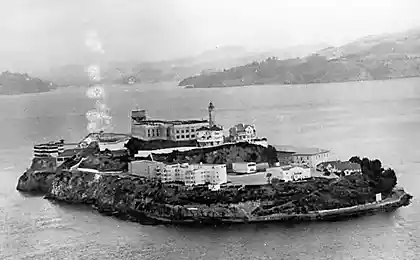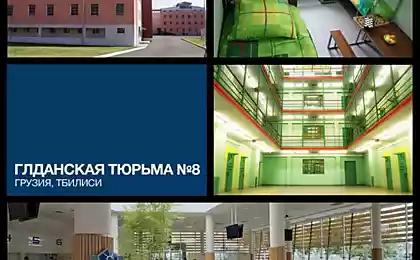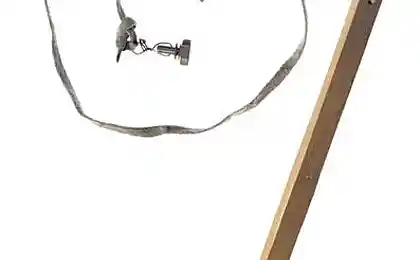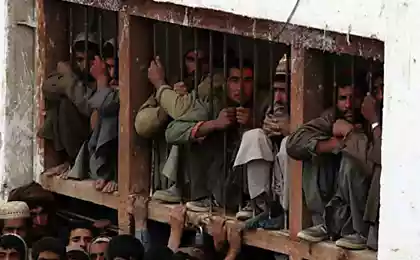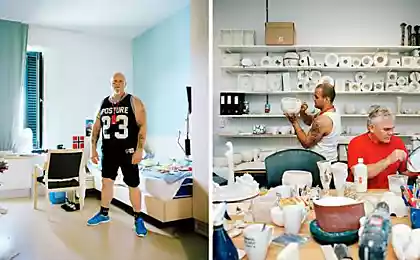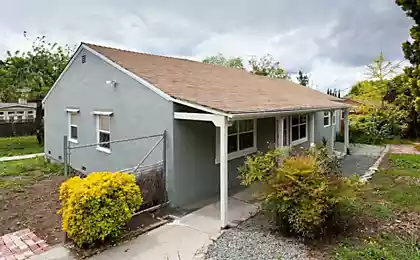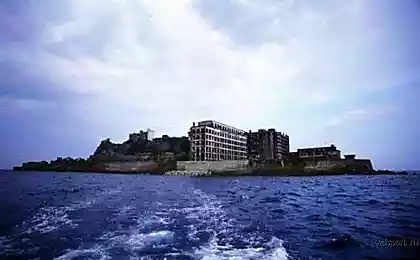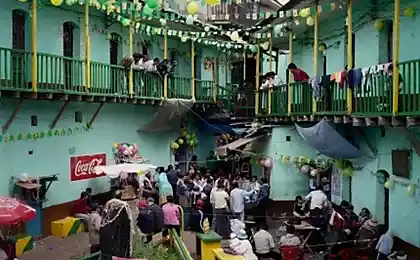1182
Special Prison S-21
Lyceum Tuol Svay Prey, he's Tuol Sleng, also known as a special prison S-21 - a place where everyone should visit visiting Phnom Penh, despite the fact that this place is the least similar to an amusement park.
28 creepy photos via
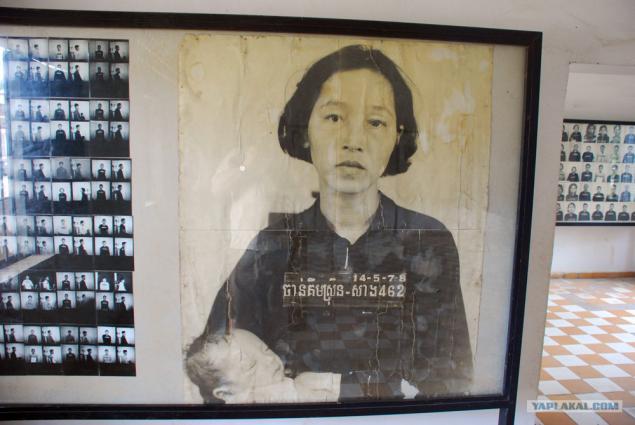
In 1975, shortly after his victory, the Khmer Rouge was elected a former high school Tuol Svay Prey as a venue for special investigation prisons (a place in the deserted Phnom Penh then was rife) and started to rebuild it under this particular application - enclosed area with barbed wire, was converted classes under the camera and torture chambers, adapted exercise equipment for grilling. It is believed that three years after the prison was about 17 thousand people (including 11 foreigners), although never simultaneously building housed more than fifteen hundred people at a time. The average length of stay in prison, accounting for approximately 2-3 months; those who did not die on the spot, were sent to the penalty Chueng Ek, a place now known as "Field of Death." We only know about the 12 prisoners passed through Tuol Sleng survivors.
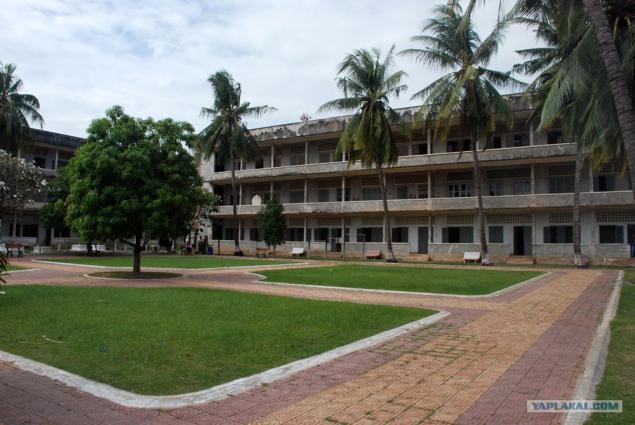
The uniqueness of Tuol Sleng in the fact that it is practically the only museum of communist crimes of this kind; all other States that have been established communist order, or have gone through a long period of refinement of manners, which gave, among other things, enough time for the destruction of such "sledstivennyh centers" or communist system retains to this day. The Pol Pot regime collapsed just two weeks, and when the city entered the Vietnamese troops, they are still caught in the prison a few dead and umirayuschmih prisoners. The irony is that the Vietnamese, through which the world learned about the crimes "of the Khmer Rouge," was enough for the soul of their skeletons, but Vietnamese Tuol Sleng is unlikely to ever become public for reasons called me.
In any case, Vietnam has a vested interest in demonstrating the brutal nature of the Pol Pot regime and the widest raspublikovala found a way to prove to the world that the Vietnamese occupation of Kampuchea was an act of extreme necessity, and almost saved the country from self-destruction. That, by and large, it was true. So that the current museum is a joint merit Vietnamese communists and the "Khmer Rouge", which just changed sides in the conflict, and eventually became the ruling elite of the People's Republic of Kampuchea
In this case (case A) were torture chambers
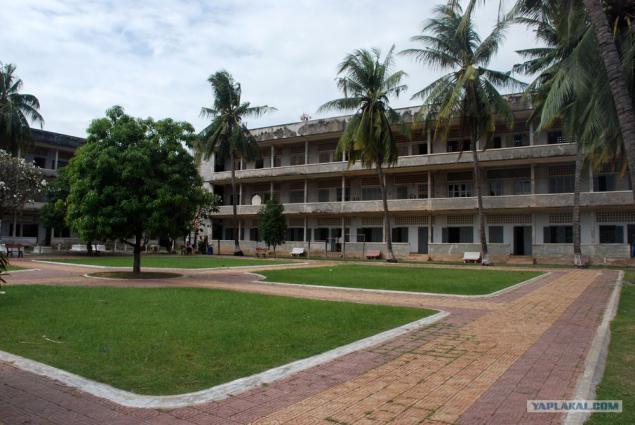
Here, at the entrance, there is an inscription in three languages, telling about the nature of what is inside
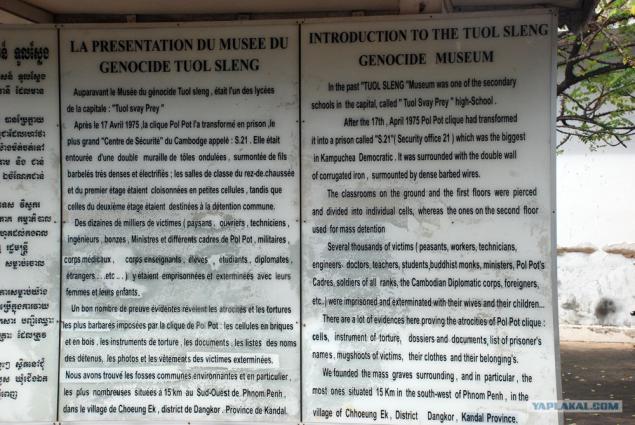
The inscription describes the victims as "peasants, workers, technicians, engineers, doctors, teachers, students, monks," Pol Pot cadres "soldiers of all ranks, Cambodian diplomatic corps, foreigners, etc.", as well as their wives and children. Perhaps in prison and pobyvaloi representatives of all these categories, but the main and basic "contingent" Tuol Sleng were just "Pol Pot cadres" - ie, those of the Khmer Rouge, who were zapodozrreny espionage, disloyalty, and so on. Cleaning out their own unit at full power immediately after the victory.
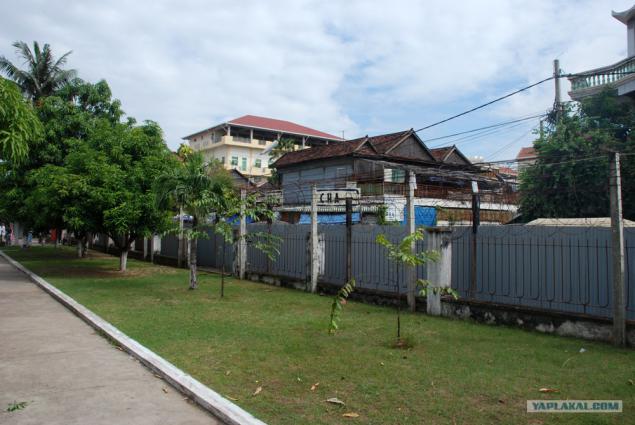
According to this inscription, in the courtyard of the Lyceum buried body last 14 people killed by security guards before fleeing, whose bodies do not have time to clean. Among the dead - a woman
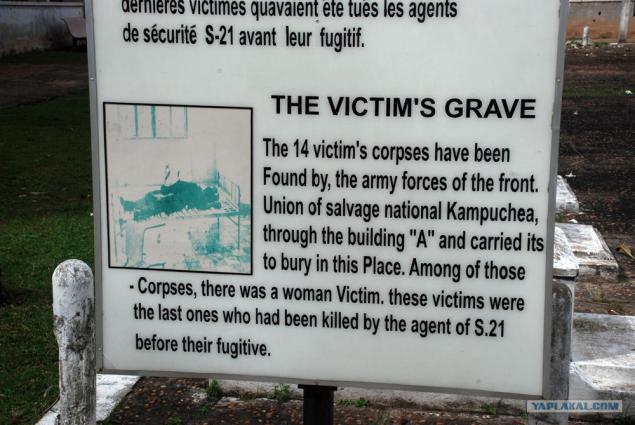
Here they are - these graves
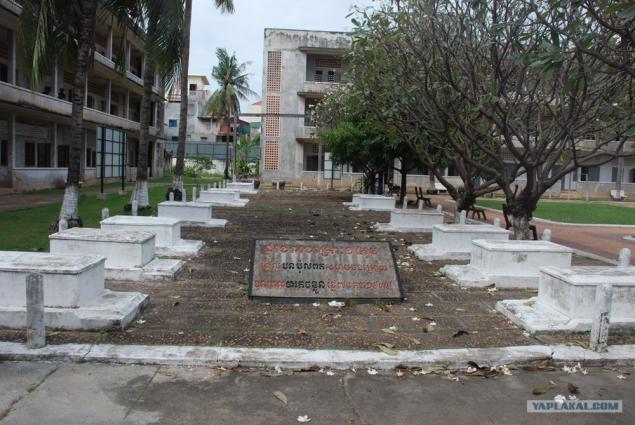
Here is a typical torture chamber - one of those in which the bodies were found prisoners
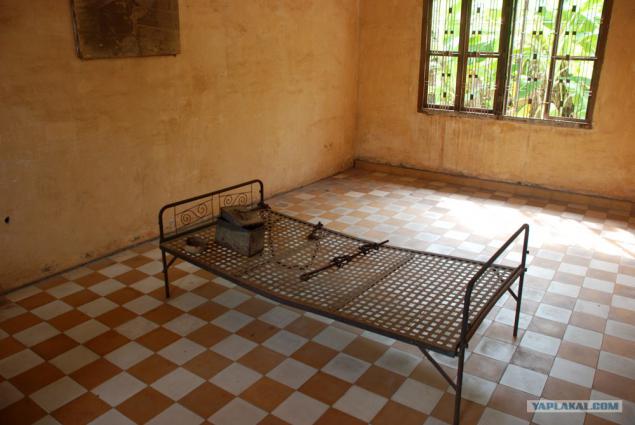
On the wall - photo camera in the form in which it found the Vietnamese war correspondents
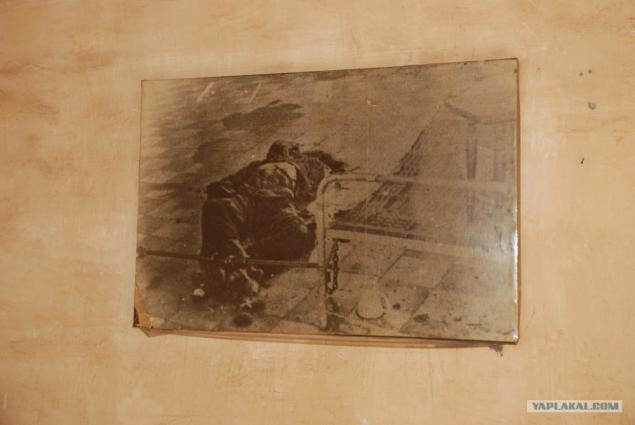
Rules of conduct in prison on a separate stand and are worth to translate them fully
Rules of safe behavior
1. You must properly answer my questions - not to circumvent them
2. Do not try to hide the facts, or those making those excuses. It is strictly forbidden to argue with me.
3. Do not try to build from a fool; here you are - the guy who ventured to interfere with the course of the revolution
4. You have to answer my questions immediately, without wasting time to think
5. Do not talk to me about their vices. nor about the essence of the revolution
6. You absolutely forbidden to shout at the time you get hit or discharge current
7. Do nothing, sit still and wait for my orders. If no orders, keep silence. When I order you to do something, you should do so immediately and without protest.
8. Do not engage in a discussion about Kampuchea Krom (Mekong Delta, departed from Cambodia to Vietnam in the 18th century. The loss of these lands - "sore spot" Rouge) to hide their secrets and betrayal
9. If you do not sledoyat the above rules, you will get a lot of punches electric cable.
10. If you do not obey any of my rules, you will receive ten strokes or five electric discharges
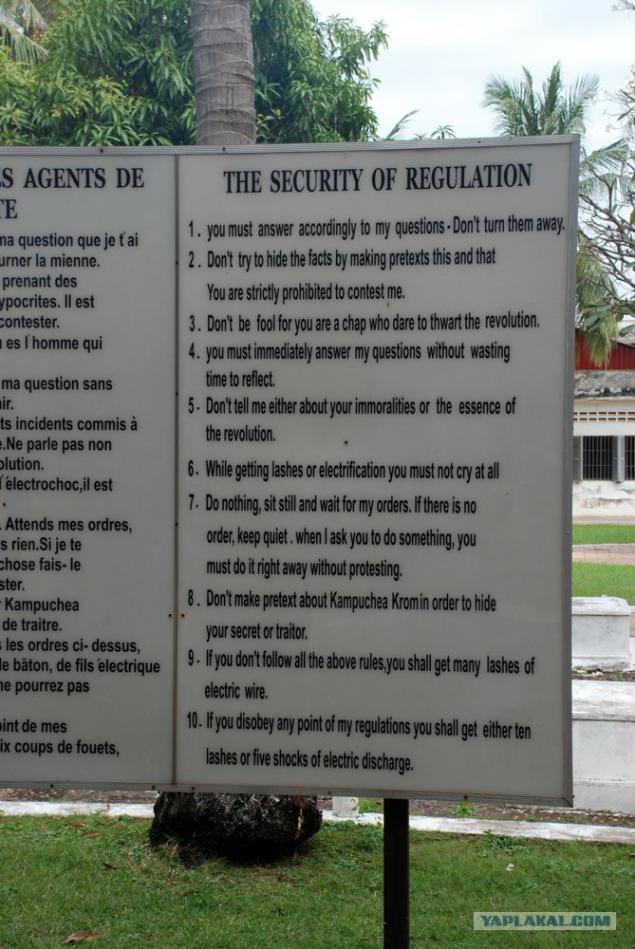
Another prisoner died Tuol Sleng
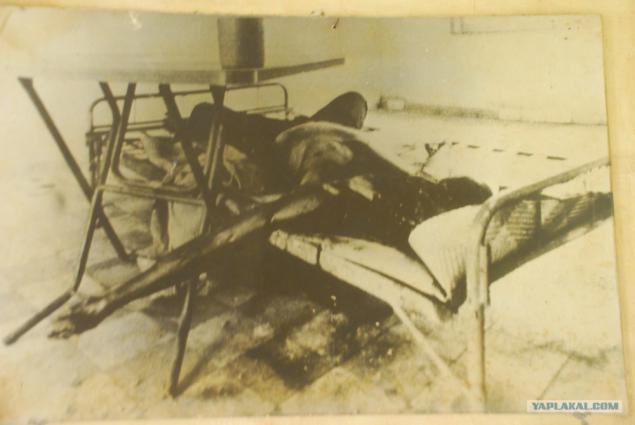
Gymnastic horizontal bar in the courtyard was transformed into a rack; We are standing next to large jars that filled with sewage. An unconscious victim was removed from the hind legs and dipped his head into the jar to bring to life. (This and other drawings made by one of the 12 surviving prisoners)
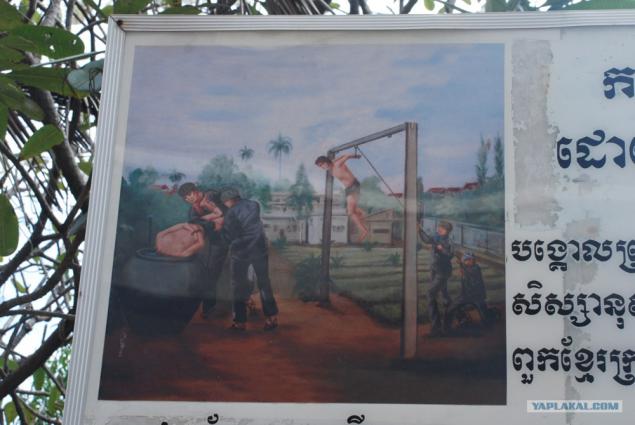
And this is - the famous photo archive Tuol Sleng. None of the depicted in the photo survived. Notice how much the photos of children and adolescents of both sexes - it's because the Khmer Rouge recruited into its "cadres" children almost from the age of ten. Cambodian revolution devours its children in the literal sense of the word.
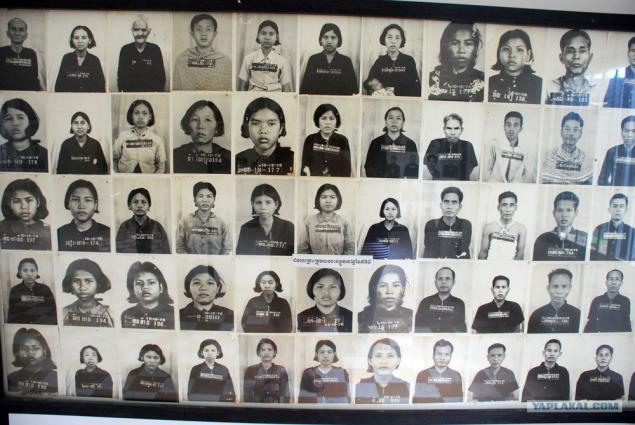
14
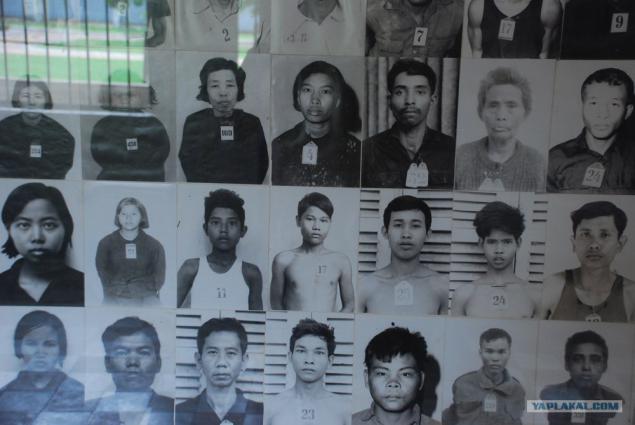
Bilbo prisoners for general camera. So, sitting or lying on the floor ryadvami, they spent most of the time
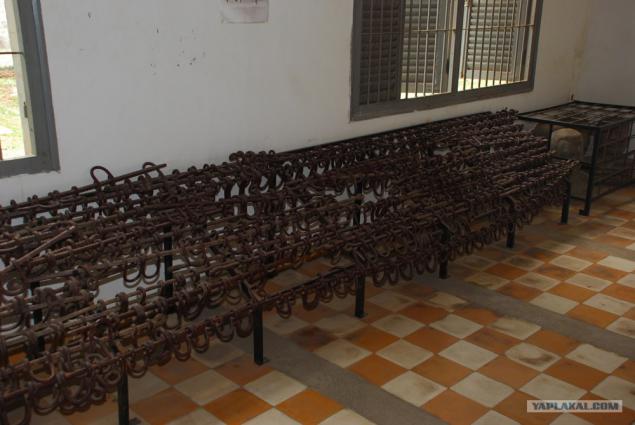
Busts Comrade Pol Pot. Now - in the cell.
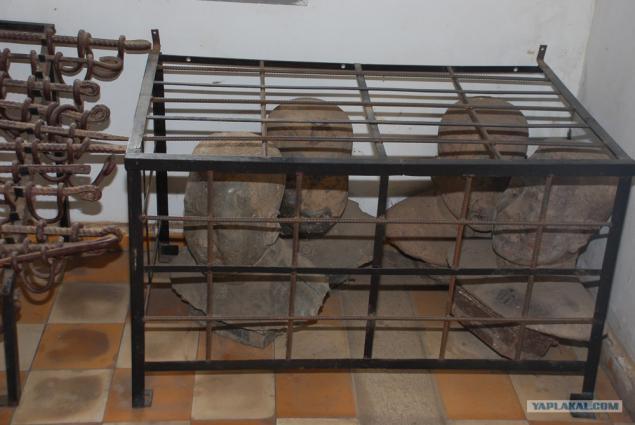
Building "C". First floor - brick solitary confinement. Second - wood. Third - general. Barbed wire to prevent suicide attempts
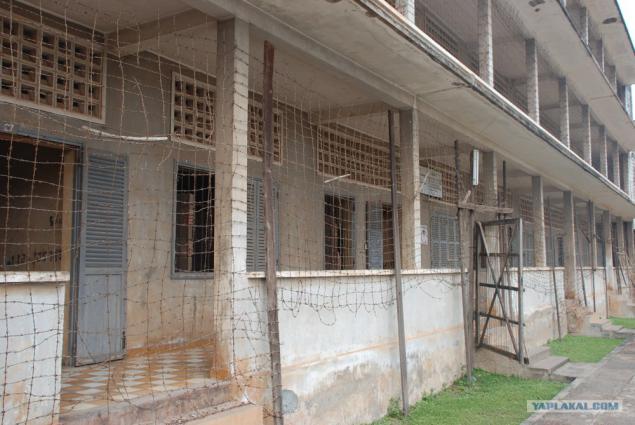
Single brick chambers of the first floor
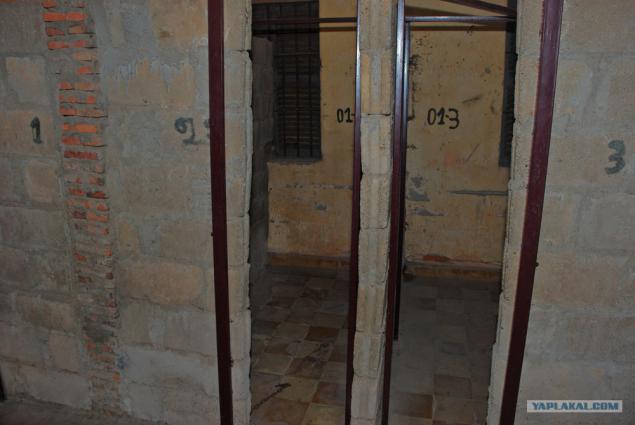
19
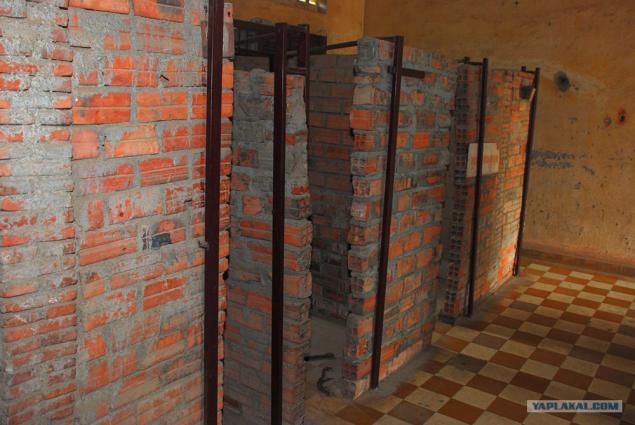
Gallery on the second floor
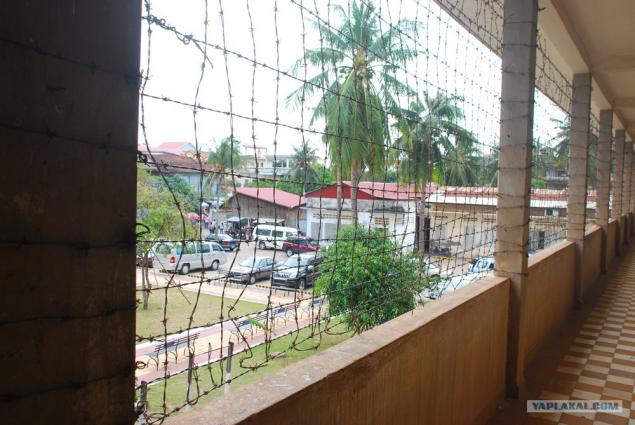
Singles second floor
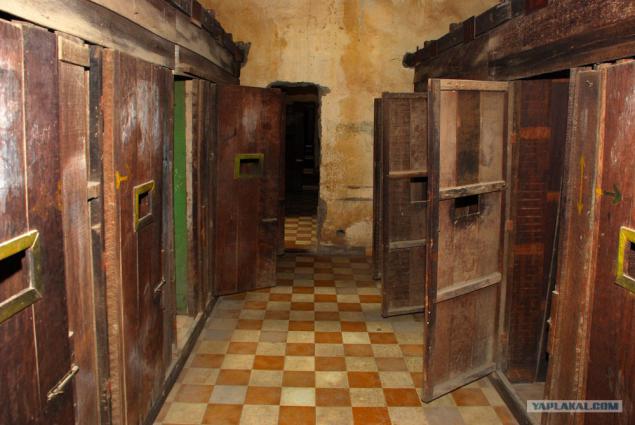
22
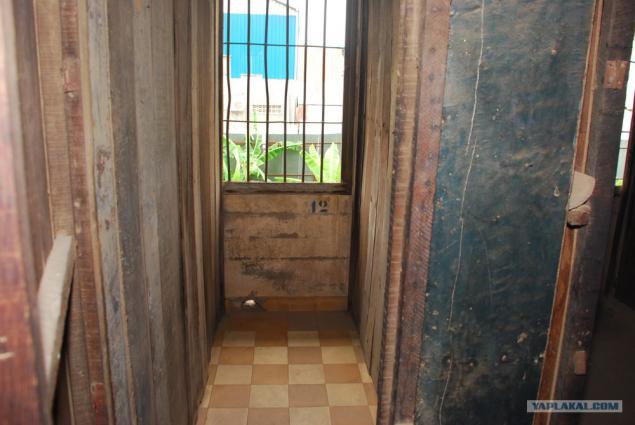
At the end are a few surviving drawings with images used in the Tuol Sleng torture, as well as photos of torture instruments is very simple. Comment is superfluous, just remind that the majority of the guards and executioners at Tuol Sleng were teenagers under 18 years.
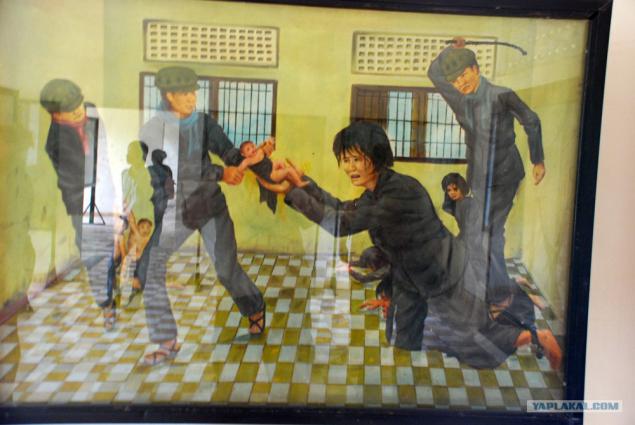
24
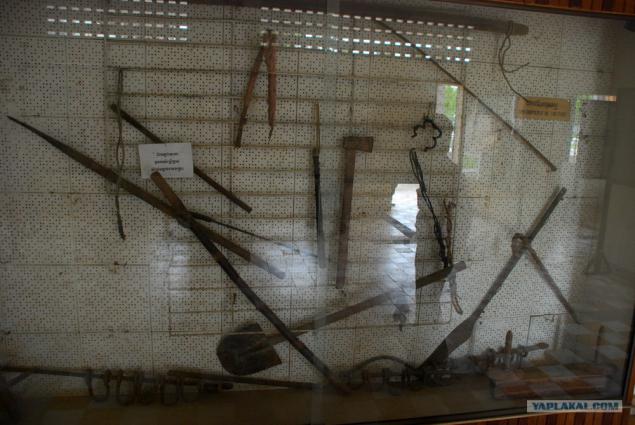
25
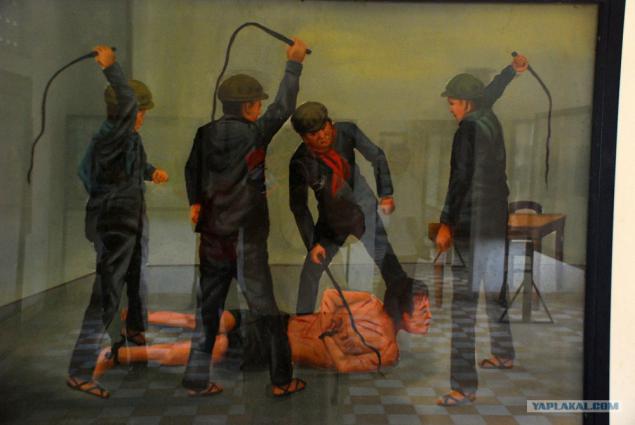
26
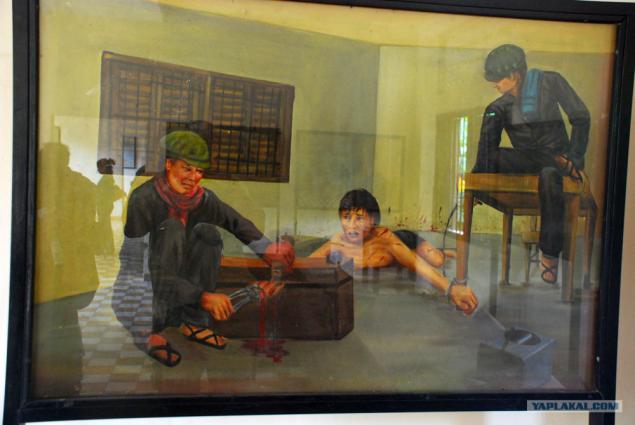
27
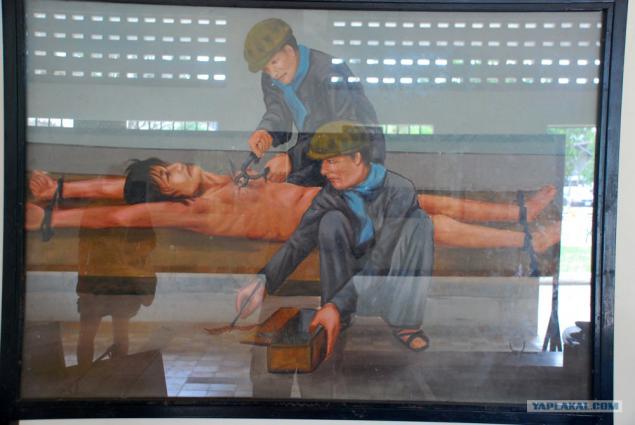
Pictures speak for themselves.
All!!!
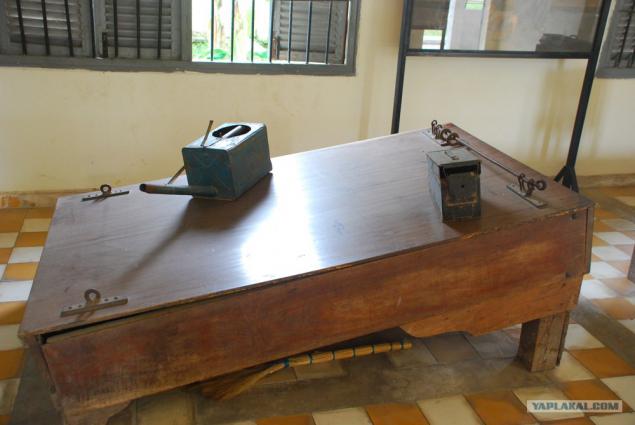
Source:
28 creepy photos via

In 1975, shortly after his victory, the Khmer Rouge was elected a former high school Tuol Svay Prey as a venue for special investigation prisons (a place in the deserted Phnom Penh then was rife) and started to rebuild it under this particular application - enclosed area with barbed wire, was converted classes under the camera and torture chambers, adapted exercise equipment for grilling. It is believed that three years after the prison was about 17 thousand people (including 11 foreigners), although never simultaneously building housed more than fifteen hundred people at a time. The average length of stay in prison, accounting for approximately 2-3 months; those who did not die on the spot, were sent to the penalty Chueng Ek, a place now known as "Field of Death." We only know about the 12 prisoners passed through Tuol Sleng survivors.

The uniqueness of Tuol Sleng in the fact that it is practically the only museum of communist crimes of this kind; all other States that have been established communist order, or have gone through a long period of refinement of manners, which gave, among other things, enough time for the destruction of such "sledstivennyh centers" or communist system retains to this day. The Pol Pot regime collapsed just two weeks, and when the city entered the Vietnamese troops, they are still caught in the prison a few dead and umirayuschmih prisoners. The irony is that the Vietnamese, through which the world learned about the crimes "of the Khmer Rouge," was enough for the soul of their skeletons, but Vietnamese Tuol Sleng is unlikely to ever become public for reasons called me.
In any case, Vietnam has a vested interest in demonstrating the brutal nature of the Pol Pot regime and the widest raspublikovala found a way to prove to the world that the Vietnamese occupation of Kampuchea was an act of extreme necessity, and almost saved the country from self-destruction. That, by and large, it was true. So that the current museum is a joint merit Vietnamese communists and the "Khmer Rouge", which just changed sides in the conflict, and eventually became the ruling elite of the People's Republic of Kampuchea
In this case (case A) were torture chambers

Here, at the entrance, there is an inscription in three languages, telling about the nature of what is inside

The inscription describes the victims as "peasants, workers, technicians, engineers, doctors, teachers, students, monks," Pol Pot cadres "soldiers of all ranks, Cambodian diplomatic corps, foreigners, etc.", as well as their wives and children. Perhaps in prison and pobyvaloi representatives of all these categories, but the main and basic "contingent" Tuol Sleng were just "Pol Pot cadres" - ie, those of the Khmer Rouge, who were zapodozrreny espionage, disloyalty, and so on. Cleaning out their own unit at full power immediately after the victory.

According to this inscription, in the courtyard of the Lyceum buried body last 14 people killed by security guards before fleeing, whose bodies do not have time to clean. Among the dead - a woman

Here they are - these graves

Here is a typical torture chamber - one of those in which the bodies were found prisoners

On the wall - photo camera in the form in which it found the Vietnamese war correspondents

Rules of conduct in prison on a separate stand and are worth to translate them fully
Rules of safe behavior
1. You must properly answer my questions - not to circumvent them
2. Do not try to hide the facts, or those making those excuses. It is strictly forbidden to argue with me.
3. Do not try to build from a fool; here you are - the guy who ventured to interfere with the course of the revolution
4. You have to answer my questions immediately, without wasting time to think
5. Do not talk to me about their vices. nor about the essence of the revolution
6. You absolutely forbidden to shout at the time you get hit or discharge current
7. Do nothing, sit still and wait for my orders. If no orders, keep silence. When I order you to do something, you should do so immediately and without protest.
8. Do not engage in a discussion about Kampuchea Krom (Mekong Delta, departed from Cambodia to Vietnam in the 18th century. The loss of these lands - "sore spot" Rouge) to hide their secrets and betrayal
9. If you do not sledoyat the above rules, you will get a lot of punches electric cable.
10. If you do not obey any of my rules, you will receive ten strokes or five electric discharges

Another prisoner died Tuol Sleng

Gymnastic horizontal bar in the courtyard was transformed into a rack; We are standing next to large jars that filled with sewage. An unconscious victim was removed from the hind legs and dipped his head into the jar to bring to life. (This and other drawings made by one of the 12 surviving prisoners)

And this is - the famous photo archive Tuol Sleng. None of the depicted in the photo survived. Notice how much the photos of children and adolescents of both sexes - it's because the Khmer Rouge recruited into its "cadres" children almost from the age of ten. Cambodian revolution devours its children in the literal sense of the word.

14

Bilbo prisoners for general camera. So, sitting or lying on the floor ryadvami, they spent most of the time

Busts Comrade Pol Pot. Now - in the cell.

Building "C". First floor - brick solitary confinement. Second - wood. Third - general. Barbed wire to prevent suicide attempts

Single brick chambers of the first floor

19

Gallery on the second floor

Singles second floor

22

At the end are a few surviving drawings with images used in the Tuol Sleng torture, as well as photos of torture instruments is very simple. Comment is superfluous, just remind that the majority of the guards and executioners at Tuol Sleng were teenagers under 18 years.

24

25

26

27

Pictures speak for themselves.
All!!!

Source:
